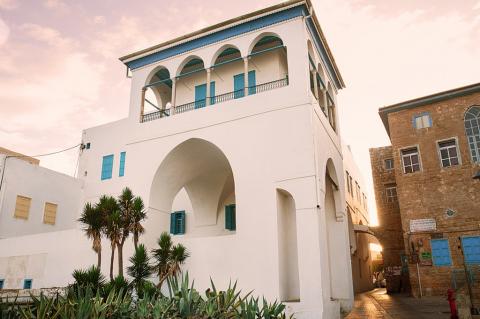‘Abdu’l-Bahá was so filled with love and the reflected Glory of God, the heritage from His Father, Bahá’u’lláh, that it radiated from Him like light from a lighthouse. Sometimes this was visible. Nina Mattieson told this story that Lady Blomfield had told her. ‘Abdu’l-Bahá was speaking from the pulpit of a church in London and Lady Blomfield, sitting toward the back of the congregation, clearly saw broad rays of golden light pouring from Him over the people. But she noticed a strange thing: The Golden Rain - as she thought of it afterward - avoided some people completely, while others it flooded in illumination.
Glow
In the days of Bahá’u’lláh, during the worst times in the Most Great Prison, they would not permit any of the friends either to leave the Fortress or to come in from the outside. “Skew-Cap” and the Siyyid lived by the second gate of the city, and watched there at all times, day and night. Whenever they spied a Bahá’í traveler they would hurry away to the Governor and tell him that the traveler was bringing in letters and would carry the answers back. The Governor would then arrest the traveler, seize his papers, jail him, and drive him out. This became an established custom with the authorities and went on for a long timeindeed, for nine years until, little by little, the practice was abandoned.
It was at such a period that the Afnán, Hájí Mírzá Muhammad-‘Alíthat great bough of the Holy Tree journeyed to ‘Akká, coming from India to Egypt, and from Egypt to Marseilles. One day I was up on the roof of the caravanserai. Some of the friends were with me and I was walking up and down. It was sunset. At that moment, glancing at the distant seashore, I observed that a carriage was approaching. “Gentlemen,” I said, “I feel that a holy being is in that carriage.” It was still far away, hardly within sight.
“Let us go to the gate,” I told them. “Although they will not allow us to pass through, we can stand there till he comes.” I took one or two people with me and we left. At the city gate I called to the guard, privately gave him something and said: “A carriage is coming in and I think it is bringing one of our friends. When it reaches here, do not hold it up, and do not refer the matter to the Governor.” He put out a chair for me and I sat down.
By this time the sun had set. They had shut the main gate, too, but the little door was open. The gatekeeper stayed outside, the carriage drew up, the gentleman had arrived. What a radiant face he had! He was nothing but light from head to foot. Just to look at that face made one happy; he was so confident, so assured, so rooted in his faith, and his expression so joyous. He was truly a blessed being. He was a man who made progress day by day, who added, every day, to his certitude and faith, his luminous quality, his ardent love. He made extraordinary progress during the few days that he spent in the Most Great Prison. The point is that when his carriage had come only part of the way from Haifa to ‘Akká, one could already perceive his spirit, his light.
After he had received the endless bounties showered on him by Bahá’u’lláh, he was given leave to go, and he traveled to China. There, over a considerable period, he spent his days mindful of God and in a manner conformable to Divine good pleasure. Later he went on to India, where he died.
In 1919, when Margaret Randall, who came to be known as Bahiyyih, was but thirteen years of age, she went to Haifa with her parents and others to see ‘Abdu’l-Bahá. Bahiyyih has recounted some of her experiences: 'One night we were sitting at the table with ‘Abdu’l-Bahá. He always placed me on His left. He smiled at me and said, "Your name is Bahiyyih. Bahiyyih means light, but unless you have something within you, something back of it, there is no light." And I realized the challenge He gave me just then.
Juliet Thompson, a devout Bahá’í and a New York artist, was told by ‘Abdu’l-Bahá that she taught well. Frankly and lovingly, He said to her: 'I have met many people who have been affected by you, Juliet. You are not eloquent; you are not fluent, but your heart teaches. You speak with an emotion -- a feeling which makes people ask, "What is this that she has?"
The Master’s radiance will inspire men and women for centuries yet unborn. He was joyful when most people in similar circumstances would have been filled with sorrow. He said that ‘sorrow is like furrows, the deeper they go, the more plentiful is the fruit we obtain.’
